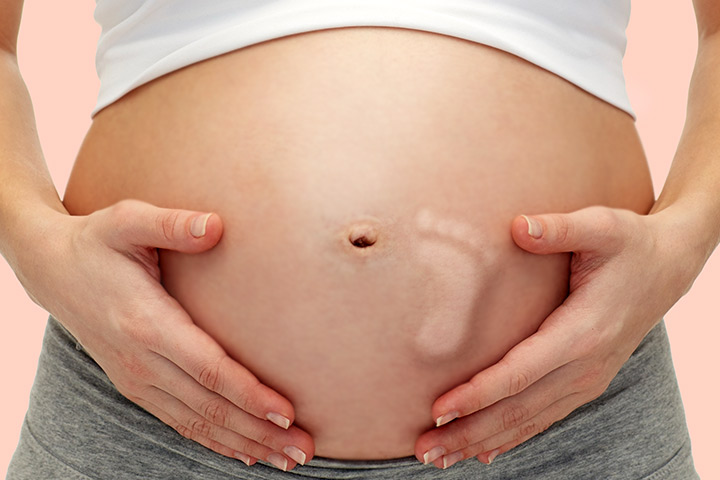Morning sickness. Vomiting. Nausea. Back pain. Pelvic pain. Shortness of breath. Hormones gone wild. High blood pressure. Swollen ankles.
These symptoms are seen as normal during pregnancy, something you better get used to for the next 38-42 weeks. You wanted a baby, now deal with it. Right?
Wrong. Sure these examples are common among pregnant women, but the intensity or even the presence of these symptoms will greatly diminish if under Chiropractic care.
Why?
As we established in previous posts, the nervous system controls all in your body. Under the direction of your body’s Innate Intelligence, the nervous system will adapt to the changes brought on by a growing new life inside of you. This new life you carry has its own Innate Intelligence that will do whatever it must to preserve the health and well being of itself. This will come at your expense, causing a number of deficiencies that your Innate Intelligence will have no choice but to adapt to.
The presence of a vertebral subluxation will interfere with the nervous system’s ability to communicate back and forth with the body. The subluxation will result in three things:
1.) Body Imbalance – a subluxation at your atlas will tilt your head to one side. Your brain has a reflex called the righting reflex which keeps your eyes level with the horizon. This will cause your lower cervical spine to bend the opposite way of your head tilt. To compensate, your thoracic spine will bend the opposite way, then the opposite way in the lumbar spine, resulting in one side of your pelvis being drawn up and causing one leg to appear shorter than the other, as well as an uneven distribution of weight putting undue stress on the joints. An unevenly aligned pelvis during pregnancy can be incredibly painful, as well as problematic for the baby trying to get into a proper birthing position.
2.) Nerve Tension or Pressure – Because of these compensations traveling down your spine, the muscles on one or both sides of your spine will become very tight, and inflammatory effects will take place and escalate in places of spinal misalignment. These changes will add stress to the nerves exiting your spinal column at some level, be it the nerve root or further along the distribution of the nerve. The nerves exiting your spine all lead to various parts of your body, including muscles, organs, glands, and blood vessels. Left alone and, over time, this nerve stress will lead to degeneration in these various body systems.
3.) Brain Stem Tension or Pressure – A subluxation of your atlas (C1) vertebra will not only narrow the spinal canal in which the spinal cord travels down, but this narrowed space will result in an increase of pressure within this spinal canal. This added pressure will cause undue stress to the brain stem located just above the atlas.
If you remember Christopher Reeve, he shattered his atlas and nearly severed his spinal cord at the level of his axis (C2) vertebra. The brain stem is the Houston Control of your body, coordinating any and all communication from the brain to the body and vice versa. Because of an injury to this area near the brain stem, Christopher Reeve could not breathe on his own without a respirator and he eventually died of heart failure due to decreased brain stem function.
As you can see, the results of a vertebral subluxation do not equate to healthy changes in your body. Your Innate Intelligence can only do so much when given a limitation of matter. Add in a growing baby using up much of your body’s resources to survive and grow within you, and you can begin to see where a subluxation can wreak havoc on the health of a pregnant woman.
How?
The spinal compensations resulting from the subluxation may result in distorted pelvic positioning, causing the baby to get into an unfavorable position for birth, possibly breech. This unfavorable position could be adding increased pressure to your pelvic veins and vena cava (the large vein on the right side of your body carrying blood from the legs back up to the heart). This pressure could slow down the flow of blood back up to the heart, causing the blood to pool in your legs. This will only add to the swelling you might be experiencing in your ankles, as well as contributing to the increased risk of preeclampsia in your last trimester.
Maybe pressure in the lower thoracic, lumbar, and sacral nerves results in decreased blood flow to organs such as your kidney and liver. This could result in decreased organ function, which may cause protein to leak into the urine, another sign of preeclampsia. Nerve tension in these lower spinal areas may result in a tight uterus, making you unable to relax during labor due to the pain you feel with each contraction. This might keep you from dilating properly, only adding to the stress a possible cesarean section can create.
A subluxation of your atlas will cause tension or pressure to the area of your brain stem. This tension or pressure will interfere with the brain stem’s ability to coordinate the messages being sent to the body by the brain. This could interfere with proper distribution of hormones such as estrogen and progesterone. Since the placenta is being developed with the help of estrogen and progesterone, a lessened amount of both these hormones may result in complications with the placenta, and therefore the growing baby inside that placenta.
As you can see, a vertebral subluxation is not a minor thing to ignore. Even the most seemingly insignificant of subluxations will always run some kind of interference to the brain-body communication. This is never a good thing, and especially not when you are pregnant and your body needs the most help and the least interference.
You deserve to have the best chance at a successful pregnancy and childbirth, and you can only do that with a nervous system that is running free and clear of interference.
Article reference- http://birthwithoutfearblog.com/2011/08/24/how-chiropractic-can-help-with-your-pregnancy-and-birth/
Picture reference- http://www.momjunction.com/articles/facts-about-babys-kicks-during-pregnancy_00356759/#gref


 At Jones Family Chiropractic we offer in-house x-rays as a convenience to our patients so they don’t have to be referred out to another location.
At Jones Family Chiropractic we offer in-house x-rays as a convenience to our patients so they don’t have to be referred out to another location. Jones Family Chiropractic utilizes a state of the art software system that assists with all aspects of chiropractic care. Analysis, results, treatment schedules and progress are all kept in our system. Each time you visit us your private and secure patient history is available for you and Dr. Jones to review and discuss.
Jones Family Chiropractic utilizes a state of the art software system that assists with all aspects of chiropractic care. Analysis, results, treatment schedules and progress are all kept in our system. Each time you visit us your private and secure patient history is available for you and Dr. Jones to review and discuss. Complimentary 15 Minute Consultation*
Complimentary 15 Minute Consultation*